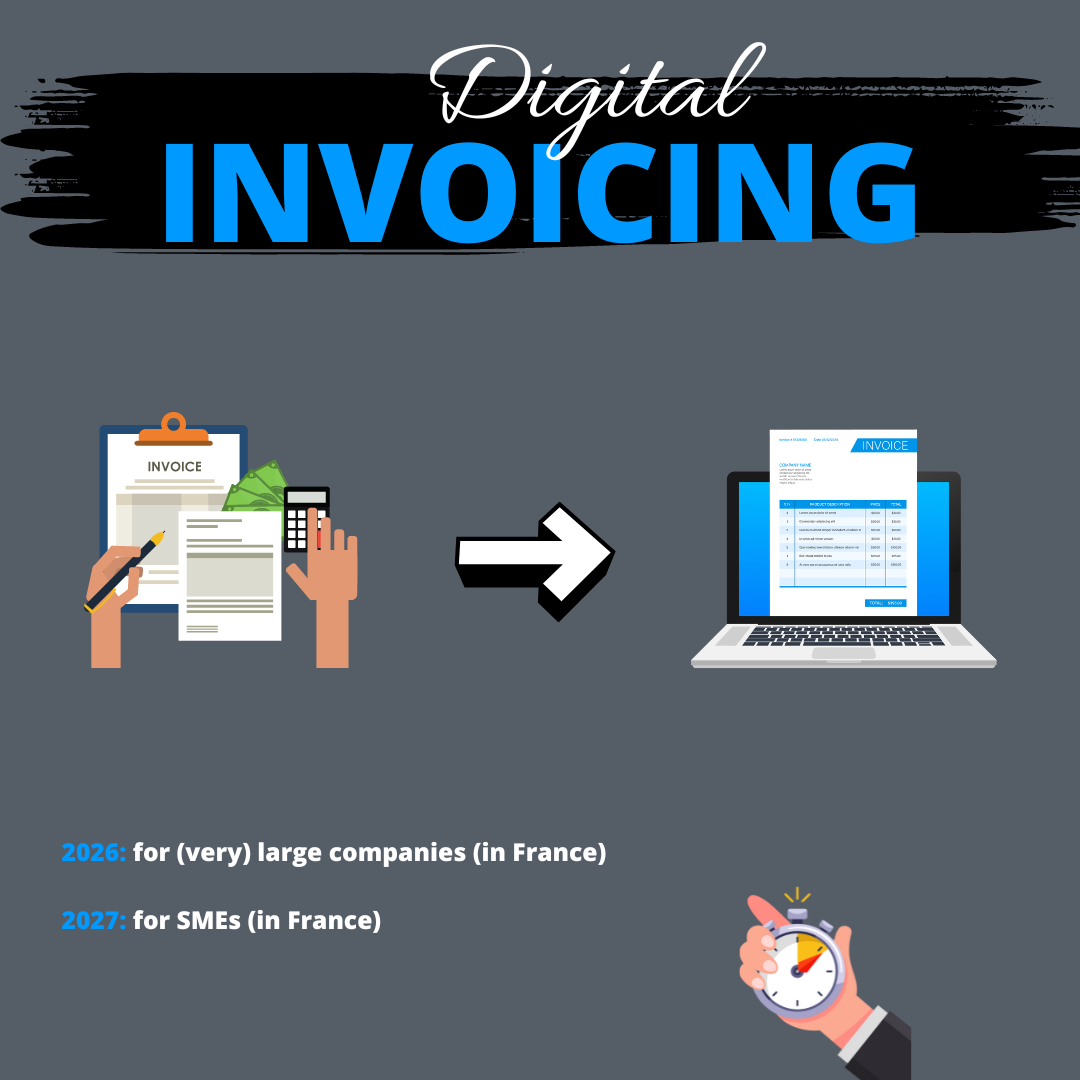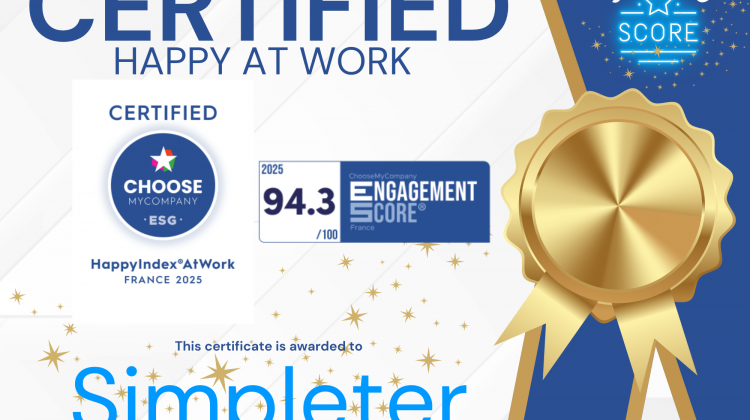New law on digital invoicing: what companies need to know
New law on digital invoicing: what companies need to know
The dematerialization of invoices is no longer just an option: depending on the size of your company, it is gradually becoming an obligation for French and European businesses. From September 1, 2026, for large companies and intermediate-sized businesses, the new law requires electronic invoicing for transactions between VAT-registered entities, as part of the reform of Continuous Transactional Control (CTC). VSEs and SMEs will have to comply with this new regulation the following year.
So, what's involved? What are the implications for companies, and how can you prepare for it with peace of mind? That's what we're going to explain in this article!
What is dematerialized invoicing?
The dematerialization of invoices involves replacing paper invoices with electronic ones, sent and received via certified IT systems. This approach is part of an overall process to modernize and digitalize public administration and business.
From 2026, all large companies subject to VAT will be required by law to send their invoices in electronic format for business-to-business transactions. This applies not only to issuing invoices, but also to signing, receiving and archiving them.
The aim of this reform is twofold:
- Simplify administrative procedures for companies by reducing the use of paper and automating invoice management, reporting and monitoring of overdue invoices.
- Reinforce the fight against VAT fraud by guaranteeing better traceability of commercial exchanges.
What companies will have to do
To comply with this new law, companies will have to adapt their invoicing procedures. Here are the main obligations ahead:
Switch to electronic invoicing: All invoices will have to be issued in electronic format. Accepted formats will be structured files (XML, UBL, Factur-X, etc.) that enable automatic integration into accounting systems.
Use a certified platform: Companies must use a Partner Dematerialization Platform (PDP) or the Public Billing Portal (PPF in France) to send and receive their invoices. These platforms guarantee the legal conformity of exchanges.
Secure electronic archiving: Invoices must be stored electronically for at least 6 years, under conditions that guarantee their security and integrity.
Adapting to e-reporting: Certain transactions not covered by e-invoicing (B2C, international transactions) will still have to be declared electronically via an e-reporting system.
Why shouldn't companies be worried about this reform?
Although this law implies changes, it also brings undeniable benefits for companies:
• Time savings: Electronic invoicing reduces invoice processing times, from issue to payment.
• Cost savings: No more printing, mailing and storage costs for paper invoices. Electronic management also helps avoid human errors and litigation.
• Better traceability: Each electronic invoice is traced, enabling better management of reminders and better accounting follow-up.
• Security: Protection against falsification and alteration of invoices.
• Compliance: Transmission via certified platforms guarantees optimum tax compliance, reducing the risk of tax adjustments.
How can you prepare?
The transition to dematerialization may seem complex, but with the right tools, it can be made with complete peace of mind. To help you prepare, here are a few key steps:
Anticipate: If you don't have an ERP system, start now to identify e-invoicing software and dematerialization platforms that will be compatible with your needs. Or opt for a global solution and look for a management software publisher complete with integrated e-invoicing module.
Train your teams: Make sure your staff understands the new obligations and knows how to use dematerialization tools.
Automate your processes: The more automated your processes, the less time you'll waste on administrative invoice management. All-in-one management software is the best option, and will avoid a multitude of tools and contacts.
Conclusion
The new law on dematerialized invoicing is a big change, but it's also an opportunity to improve the efficiency and compliance of your financial processes. By preparing now and adopting the right tool, such as Simpleter (all-in-one ERP), you can approach this transition with confidence.

The latest news & updates from Simpleter.
Subscribe to our newsletter
Subscribe to our monthly newsletter and keep up to date with our latest news.






